Posted on October 18, 2008 by The Orwell Prize -
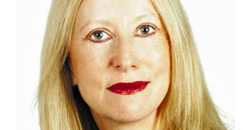
Mary Riddell is an assistant editor of the Daily Telegraph, where she is a columnist and political interviewer. A former deputy editor of Today, she has written for a number of national newspapers, including The Observer, on social, constitutional and foreign affairs, as well as covering criminal justice and Westminster politics. Her writing awards include Interviewer of the Year in the British Press Awards and a commendation in the feature-writing category. She has twice been named legal journalist of the year by the Bar Council and has previously been shortlisted for the Orwell Prize for Journalism (2008).
Submitted articles
Other links
Posted on October 18, 2008 by The Orwell Prize -

Alec Russell is the commentand anlysis editor of the Financial Times, having previously been world news editor. He started his career as a journalist in Romania in the aftermath of the December 1989 revolution. He was in Bosnia and Croatia during the war from 1991 to 1993 and then spent five years based in South Africa as the Daily Telegraph’s correspondent. He then became the paper’s foreign editor for the Iraq War. In 2007 he returned to South Africa for the Financial Times for a second stint. Alec has written three books: Prejudice and Plum Brandy, about his time in the Balkans; Big Men, Little Men, a reflection on his time in South Africa in the mid 90s; and After Mandela, about South Africa under Mbeki. His writing has won several awards and his dispatches from southern Africa have earned him nominations for the 2008 Pulitzer Prize and for British foreign correspondent of the year.
Submitted articles
- Softly, softly: Mbeki seeks ways to limit chaos to the north and tensions within
- No end in sight Zimbabwe groans amid shortages and spiralling inflation
- A long journey
- Fenced in: Why land reform in South Africa is losing its pace
- The new colonialists
- The left-leaning Zulu
Other links
Posted on October 18, 2008 by The Orwell Prize -

Michael Settle is the UK political editor of The Herald.
Submitted articles
Other links
Posted on October 18, 2008 by The Orwell Prize -

Paul Vallely writes on social, ethical and religious issues. He is a former executive editor of the Independent on Sunday and of The Sunday Times News Review. He has previously reported from over 30 countries and was the Africa correspondent for The Times. He has written a number of books including Bad Samaritans: First World Ethics and Third World Debt and Promised Lands, a study of land reform in the Philippines, Brazil and Eritrea. He is the editor of The New Politics: Catholic Social Teaching for the 21st Century and A Place of Redemption: a Christian approach to punishment and prison.
Submitted articles
Other links
Posted on October 18, 2008 by The Orwell Prize -
Justin Webb is one of the presenters of the Today programme on BBC Radio 4. He joined the BBC as a graduate trainee in 1984 working in Northern Ireland for BBC Radio Ulster based in Belfast, before becoming a reporter on the Today programme. After leaving Today, he worked as a foreign affairs correspondent based in London covering news around the world. He then presented the BBC news – moving from Breakfast to the Six O’Clock News – during which time he interviewed prime ministers John Major and Tony Blair. There then followed three years working as the BBC’s Europe correspondent based in Brussels before being posted to Washington as the chief radio correspondent, and then BBC North America editor, in 2001.
Submitted articles
Other links
Posted on October 18, 2008 by The Orwell Prize -

As well as writing a column for The Observer, Henry Porter has published six novels, including the recent The Dying Light and Brandenburg (which won the Ian Fleming Crime Writers’ Association Steel Dagger as the best thriller of 2005). He has also written one non-fiction title, Lies Damned Lies, a study of truthfulness in British journalism. He has written for the Sunday Times, The Guardian, Daily Telegraph, Sunday Telegraph and the Evening Standard. He is the London editor of Vanity Fair magazine.
Submitted articles
Other links
Posted on October 19, 2007 by The Orwell Prize -
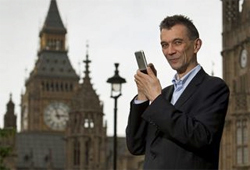
John Rentoul is chief political commentator for The Independent on Sunday, and visiting fellow at Queen Mary, University of London, where he teaches contemporary history. Previously he was chief leader writer for The Independent. He has written a biography of Tony Blair, whom he admired more at the end of his time in office than he did at the beginning.
Posted on October 19, 2007 by The Orwell Prize -

Peter Beaumont is foreign affairs editor at The Observer. He has reported extensively from conflict zones including Africa, the Balkans and the Middle East, and has written widely on human rights issues and the impact of conflict on civilians. He is the author of The Secret Life of War: Journeys Through Modern Conflict.
Submitted articles (incomplete)
Other links
Posted on October 19, 2007 by The Orwell Prize -
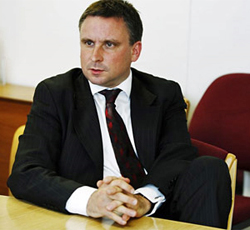
Longlisted for work published by the New Statesman. Martin Bright began his journalistic career writing in very simple English for a magazine aimed at French school children. This experience has informed his style ever since. He worked for the BBC World Service, and The Guardian before joining The Observer as Education Correspondent. He went on to become Home Affairs Editor before becoming the New Statesman’s political editor in 2005. He left the New Statesman in January 2009, and started blogging on Spectator.co.uk. He was appointed political editor of the Jewish Chronicle in August 2009.
Posted on October 19, 2007 by The Orwell Prize -
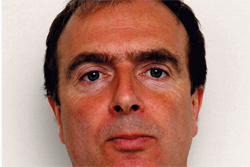
Peter Hitchens is a columnist and reporter for the Mail on Sunday, having previously reported from Moscow and Washington for the Daily Express. He has contributed to other publications, such as Prospect and The Guardian, authored documentaries on Channel 4 and the BBC, and appeared elsewhere on radio and television. Peter has also written a number of books, including The Rage Against God, The Cameron Delusion, The Broken Compass, The Abolition of Britain, The Abolition of Liberty and A Brief History of Crime.
Posted on October 19, 2006 by The Orwell Prize -
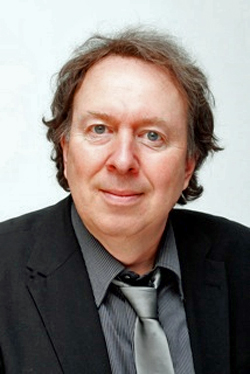
Established as one of the most influential political commentators in the country, Steve Richards became The Independent’s chief political commentator in 2000 having been political editor of the New Statesman. He previously presented GMTV’s flagship current affairs show The Sunday Programme and presents BBC Radio 4’s Week in Westminster.
Posted on October 19, 2006 by The Orwell Prize -

Jonathan Freedland has been a columnist for The Guardian since 1997. He also writes a monthly column for the Jewish Chronicle, as well as presenting BBC Radio 4’s contemporary history series, The Long View. He served for four years as The Guardian’s Washington correspondent and has written for a variety of US publications, including the New York Times, Los Angeles Times and Newsweek. US affairs remain a keen interest, along with British politics and the Middle East. He has written two books, Jacob’s Gift (2005) and Bring Home the Revolution: the Case for a British Republic (1998).
Posted on October 19, 2006 by The Orwell Prize -

Oliver Burkeman is a features writer for G2.
Posted on October 19, 2006 by The Orwell Prize -

Jonathan Freedland has been a columnist for The Guardian since 1997. He also writes a monthly column for the Jewish Chronicle, as well as presenting BBC Radio 4’s contemporary history series, The Long View. He served for four years as The Guardian’s Washington correspondent and has written for a variety of US publications, including the New York Times, Los Angeles Times and Newsweek. US affairs remain a keen interest, along with British politics and the Middle East. He has written two books, Jacob’s Gift (2005) and Bring Home the Revolution: the Case for a British Republic (1998).
Posted on October 19, 2006 by The Orwell Prize -

Timothy Garton Ash is the author of nine books of political writing or ‘history of the present’ which have charted the transformation of Europe over the last quarter-century. He is Professor of European Studies in the University of Oxford, Isaiah Berlin Professorial Fellow at St Antony’s College, Oxford, and a Senior Fellow at the Hoover Institution, Stanford University. His essays appear regularly in the New York Review of Books and he writes a weekly column in The Guardian which is widely syndicated in Europe, Asia and the Americas.
Other links
Posted on October 19, 2006 by The Orwell Prize -

Bronwen Maddox is Chief Foreign Commentator of The Times, in which she writes the World Briefing. From 1996 to 1999, she was the paper’s Washington Bureau Chief and US Editor. Previously, she was at the Financial Times, where she was an investigative reporter.
Posted on October 19, 2006 by The Orwell Prize -

Established as one of the most influential political commentators in the country, Steve Richards became The Independent’s chief political commentator in 2000 having been political editor of the New Statesman. He previously presented GMTV’s flagship current affairs show The Sunday Programme and presents BBC Radio 4’s Week in Westminster.
Posted on October 19, 2006 by The Orwell Prize -
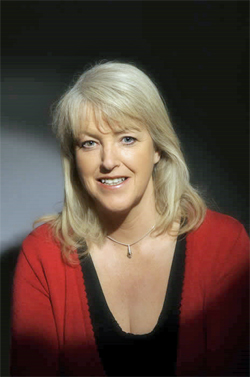
Lesley Riddoch is one of Scotland’s best known commentators and broadcasters. She has held many influential positions including assistant editor of The Scotsman and contributing editor of the Sunday Herald. She is perhaps best known for her broadcasting with programmes on Radio 4, BBC Radio 2 and BBC Radio Scotland, for which she has won two Sony speech broadcaster awards. Lesley runs her own independent radio and podcast company, Feisty Ltd, which has produced several series including a weekly topical phone-in programme for BBC Radio Scotland. She is a weekly columnist for The Scotsman and the Sunday Post and a regular contributor to The Guardian’s Comment is Free.














